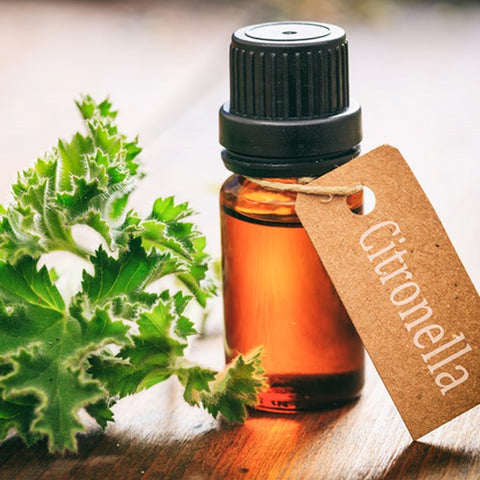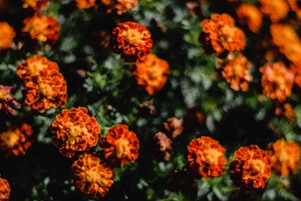Creating an Insect-Repellent Paradise: Natural and Organic Plants for an Australian Summer
The Australian summer is a time of great joy, with its sunny days and outdoor gatherings. However, it also brings along a less-welcome guest: insects. Mosquitoes, flies, and other pests can quickly turn your outdoor haven into an itchy and uncomfortable space. But fear not, for nature provides us with a multitude of natural and organic bug repellent solutions. In this comprehensive guide, we'll explore a variety of plants that not only beautify your garden but also act as effective insect repellents during the Australian summer.
The Organic Garden Approach
Before we delve into the specific plants that repel insects, let's embrace the organic gardening philosophy. Organic gardening is not just about avoiding chemical pesticides; it's a holistic approach that promotes biodiversity, soil health, and the overall well-being of your garden. Here are some key principles to keep in mind:
- Healthy Soil: Start with healthy soil. Well-nourished soil produces strong and resilient plants that are less susceptible to pests.
- Companion Planting: Planting certain species together can enhance each other's growth and deter pests. We'll explore companion planting in detail later.
- Organic Mulch: Use organic mulch to conserve moisture, suppress weeds, and provide habitat for beneficial insects.
- Regular Maintenance: Regularly inspect your garden for signs of pests and diseases. Early intervention can prevent major infestations.
Now, let's discover the star players in our insect-repelling garden.
The Beauty of Natural Insect Repellents
Using natural insect-repellent plants is not only environmentally friendly but also enhances the beauty and harmony of your garden. These plants keep insects at bay and also add fragrance, color, and biodiversity to your outdoor space. Here are some top choices for your Australian summer garden:
Citronella Grass (Cymbopogon nardus)
Citronella is a well-known natural insect repellent. It's commonly found in candles, but the live plant is even more effective. Plant citronella grass in pots and place them strategically around your garden to keep mosquitoes away. It's a clumping grass with a strong lemony scent that deters flying insects.
Lemon Eucalyptus (Eucalyptus citriodora)
Lemon Eucalyptus is native to Australia and has leaves that contain an oil with excellent insect-repelling properties. This tree not only keeps insects away but also provides a lovely fragrance to your outdoor space. Consider having a eucalyptus tree in your garden to naturally deter pests.
Marigolds (Tagetes)
Marigolds are not only stunning with their vibrant blooms, but they also serve as natural pest repellents. They deter aphids, nematodes, and other garden pests. Plant marigolds around the edges of your garden beds to add a pop of color while keeping unwanted insects at bay.
Basil (Ocimum basilicum)
Basil is not just a culinary herb; it's also a powerful insect repellent. It's known to repel flies and mosquitoes. Plant basil near your outdoor seating areas or around vegetables that are vulnerable to pests like tomatoes, beans, and cabbages. You'll enjoy the added benefit of fresh basil for your cooking.
Lavender (Lavandula angustifolia) 
Lavender not only adds a delightful fragrance to your garden but also repels mosquitoes. Its beautiful purple flowers are a visual treat, and its aroma keeps unwanted insects away. Place lavender near seating areas to create a pleasant and pest-free outdoor experience.
Companion Planting for Maximum Protection
Companion planting is a gardening strategy where you pair plants that benefit each other. In the case of insect repellents, combining certain plants can enhance their effectiveness. Here are some companion planting suggestions:
- Marigolds and Tomatoes: Marigolds deter nematodes and enhance the flavor of tomatoes. Plant marigolds around your tomato plants for protection and improved taste.
- Basil and Tomatoes: Basil not only repels pests but also complements the flavor of tomatoes. Grow basil near your tomatoes for a natural and culinary partnership.
- Lavender and Rosemary: These aromatic herbs work together to create a fragrant barrier against mosquitoes and other insects. Plant them together to amplify their insect-repelling powers.
Organic Care Tips for Your Insect-Repellent Garden
To maintain a healthy and thriving insect-repellent garden, follow these organic care tips:
- Mulching: Use organic mulch to retain moisture, suppress weeds, and create a hospitable environment for your plants. This also helps reduce the need for excessive watering.
- Proper Pruning: Regularly prune your plants to encourage airflow and discourage pest infestations. Overcrowded and overgrown plants can become breeding grounds for insects.
- Homemade Natural Sprays: Create homemade insect repellent sprays using ingredients like neem oil, garlic, chili peppers, or even soap and water. These DIY solutions are safe for your plants and the environment.
Embracing natural and organic methods to repel insects in your Australian summer garden not only protects your outdoor space but also promotes a healthier and more sustainable environment. By incorporating citronella, lemon eucalyptus, marigolds, basil, lavender, and practicing companion planting and organic care, you can create a thriving garden that is both beautiful and naturally insect-repellent.
Organic Outdoor Skin Care Products
Our Chagrin Valley Outdoor products are formulated with organic and natural ingredients and are a perfect complement to natural insect repellent plants. All have Organic Citronella essential oil, Organic Lemon Eucalyptus Essential Oil, Organic Lavender Essential Oil and Organic Basil Essential Oil:
- Bug-off Organic Repellent Stick
- Organic Natural Insect Repellent Candle
- Camping & Trail Organic Soap Bar
Say goodbye to chemical sprays and welcome the beauty of nature into your outdoor haven. Your garden will not only be a sanctuary for you but also a safe and vibrant space for local wildlife and beneficial insects. Enjoy a pest-free Australian summer with the power of nature's own insect repellents.










